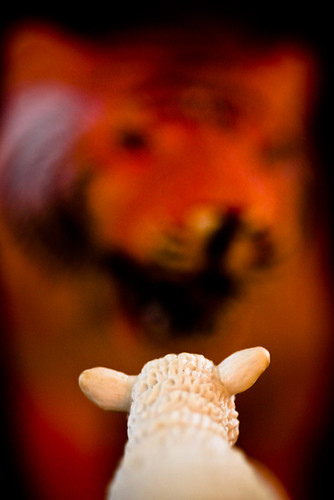A while back, when the shit was hitting the fan because I was no longer willing to play the crying, wheedling, please-mommy-I'll-be-good-and-do-whatever-you-ask daughter, my mother wrote me a long letter telling me everything that's wrong with me, and I wrote a short letter back. My letter could be summed up as saying "I won't allow you to treat me this way. You may not bully me." Using the B word struck a nerve. Nobody wants to be called a bully, least of all the bully herself.
My letter came to mind a few nights ago when I attended a parents' night at my children's school. The topic was bullying, approached not from the zero-tolerance, bullies-are-bad-people standpoint that I'm accustomed to hearing from schools, but rather from a very thoughtful, developmental-research-based angle. We discussed a definition of bullying put forward by
Dr. Dan Olweus, a Norwegian professor of psychology who has been studying bullying for almost 40 years.
He describes bullying thusly:
"A person is bullied when he or she is exposed, repeatedly and over time, to negative actions on the part of one or more other persons, and he or she has difficulty defending himself or herself."
This definition includes three important components:
1. Bullying is aggressive behavior that involves unwanted, negative actions.
2. Bullying involves a pattern of behavior repeated over time.
3. Bullying involves an imbalance of power or strength.
Negative actions are
defined as actions through which someone intentionally inflicts, or attempts to inflict, injury or discomfort upon another person. This may include physical abuse as well as verbal abuse like namecalling, threatening, taunting, teasing, spreading rumors, or also "indirect bullying" actions such as making faces or excluding someone from a group. In bullying situations, there is generally a power imbalance, in which the bully has greater power (social status, age, size, intelligence, etc) than the target.
This resonates with how I view bullying when it applies to my children (as instigators or as targets), but what was even more striking to me was that it was exactly what I have believed for many years about my mother and her treatment of me. Discomfort, both emotional and physical, was intentionally inflicted upon me and my siblings repeatedly. I heard her talk on many occasions about exactly why she did what she did, and it was all about manipulating people and intentionally making them squirm so that she could obtain/maintain the upper hand. While she also did this in her professional life, this MO was especially applied of her children, who were, of course, smaller, younger, and weaker than herself, and dependent upon her.
My mother's entire parenting philosophy centered on power. When she recalled problems with us in the past it was always framed as a power struggle, and the only acceptable outcome was for her to win. She made fun of parenting advice that focused on consensus-building or parents showing friendly compassion for children; her favorite parenting author was James Dobson, who wrote:
...Mom or Dad should have some means of making their youngster want to cooperate...I will suggest one: it is a muscle lying snugly against the base of the neck...when firmly squeezed, it sends little messengers to the brain saying "This hurts: avoid recurrence at all costs." The pain is only temporary; it can cause no damage. But it is an amazingly effective and practical recourse for parents when their youngster ignores a direct command to move.
That sounds like intent to cause discomfort to me. I suffered the neck pinch on multiple occasions, usually in public. I imagine it looked like a mother lovingly putting her arm around her child's shoulders. In addition to having to immediately comply with whatever I was expected to do, there was also the expectation that I not let other people know that I was being hurt.
My mother was a person who could read the passage above and think "yes, this is what I will do to my children, this is a good way to parent." How does this happen? Bullies are people.
Why do they bully? Because of a fundamental insecurity that stems from receiving inadequate nurturing and/or inadequate limits. They bully to get attention, to get power, to elicit fear, to gain connection.
I would say that my mother is one of the bullies who is the way she is because of inadequate nurture. She didn't want to be like her father. She knew that he was an abuser because his mother both withheld appropriate nurture and did not set important limits. She knew that he visited the same neglect on her (although not the permissiveness). She didn't want to repeat his mistakes with her children, yet she never realized (and still apparently hasn't) that the key to being a good and loving parent was not merely to avoid doing the specific things that he did, but to examine her own neglected childhood and care for herself so that she would not turn to bullying her children in order to get the attention and power she needed but didn't get as a child.
In the schools, enlightened administrators know that in order for bullying to stop, somebody must help the kids who are doing the bullying. Those kids have a need that must be filled, by adults or by themselves. For enlightened parents to stop the cycle of abuse, we have to dig down and find that injured, neglected place inside and find ways to nurture ourselves. If we don't, we are doomed to repeat the errors of our parents and commit negative actions against our own children in our own struggle to find connection.




